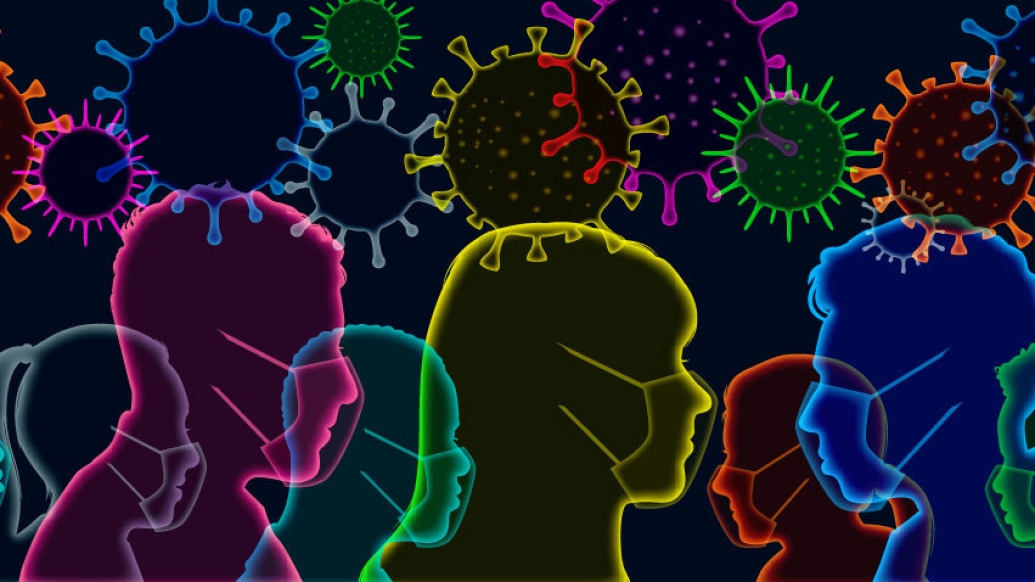Free online toolkit aims to support providers in identifying problems their patients may be experiencing, and intervening early.
9:45 AM
Author |

Desperately ill COVID-19 patients are pouring into America's hospitals and capturing headlines nationwide. But a wave of a more invisible kind has started to hit another part of the nation's health care system.
The number of people dealing with mental distress caused by enduring months of a pandemic, economic disruption and political turmoil is rising fast. And America's primary care clinics – general internal medicine, family practice, pediatrics and gynecology offices – are the front line for Americans' mental health concerns.
To help primary care clinics cope with this influx, the University of Michigan Department of Psychiatry has created an online COVID-19 provider toolkit that draws on the expertise of its mental health specialists and researchers.
The toolkit recognizes that regular checkups and appointments for non-COVID-related ills have become key opportunities to find out who needs help for new or worsening mental health issues, even if they don't yet recognize it.
For primary care providers in the state of Michigan, Michigan Medicine offers even more support through the free MC3 program that connects them to psychiatrists for same-day consultation in managing patients who are under the age of 26, pregnant or recently gave birth.
Support for managing mental distress and more
The COVID-19 provider toolkit also gives primary care teams tools to identify people whose economic situation threatens their physical and mental health, by interrupting their ability to pay for housing and utilities, their food supply and their access to medication for chronic conditions.
On top of that, the toolkit pays special attention to the secondary impacts of the isolation caused by virtual school and work, and reduced social contact.
Less interpersonal interaction in other settings means that primary care providers may be some of the first to spot signs that their patients have become victims of someone else's psychological turmoil through child abuse and neglect, intimate partner violence including spousal abuse, and elder abuse.
The overall goal: to help primary care providers offer trauma-informed care, based on the best available evidence from the last two decades of psychiatric research.
"Pandemics and quarantines are known to cause a significant increase in mental health and substance use issues," says Leslie Swanson, Ph.D., a psychologist and clinical associate professor of psychiatry at U-M who helped lead the effort to develop the toolkit along with psychologist and clinical assistant professor Angela Fish, Ph.D.
Swanson adds, "It is our hope that the toolkit will increase awareness of the pandemic's impact across the lifespan and across diverse groups and serve as a comprehensive resource for providers, with screening measures and concrete tools to assist with meeting patients' needs."
A comprehensive toolkit for providers
Swanson and her colleagues collaboratively created the toolkit in partnership with providers from adult primary care and pediatrics.
They especially sought to provide rapid access to screening tools, validated questionnaires and suggested scripts for members of primary care teams to use to identify traumatic stress reactions, abuse from intimate partners and those who live with children or older adults, substance use and sleep difficulties during the pandemic.
They included materials aimed at helping providers adjust their approach when connecting about mental health and substance use with people from different backgrounds, including recent immigrants, LGBTQ+ people, and people from Asian, Black, Hispanic and Middle Eastern backgrounds.
And, the toolkit includes links to high quality information that providers can give their patients of all ages and the parents or caregivers who care for them – including materials found on the U-M Depression Center Toolkit that has offered free online resources for years. Many of these materials are available in several languages.
The team also hopes the tools will be useful long after COVID-19 is under control, because trauma can last and manifest itself long after a crisis has passed.
Downstream effects of COVID on mental health
Primary care providers who are caring for people who are recovering from COVID-19, especially those who have been hospitalized in intensive care, may especially need support in handling intense mental health issues.
But even people who have not contracted coronavirus are being seriously affected, says Elizabeth Duval, Ph.D., a U-M psychologist and assistant professor of psychiatry also involved in the toolkit's development. Among people who have sought specialized mental health care, "There's a lot of anxiety about contracting COVID-19, uncertainty about transmission risk, and fear and grief associated with losing a loved one to COVID," she says. "It's impacting a lot of people in profound ways in terms of our ability to function."
SEE ALSO: Getting Through a Pandemic When You Have a Mental Health Condition
Michelle Riba, M.D., clinical professor of psychiatry, associate director of the U-M Depression Center, and director of the PsychOncology Program at the U-M Rogel Cancer Center, voices similar concerns. "I'm worried about post-traumatic stress. People are tired and not sleeping well, and we're seeing PTSD-like symptoms. We're seeing a lot of people self-disclosing that they're anxious, depressed, maybe not attending to their medical issues, so we're seeing people coming to get medical attention with more serious illness, including psychiatric problems."
More free mental health management toolkits
For people who already had been diagnosed with a mental health condition before COVID-19 arrived, the department offers a special toolkit for managing the added burden of living in the time of a pandemic.
For people who want to learn more about keeping themselves and their loved ones mentally well despite the ongoing pandemic, there's a toolkit of general resources including tips for reducing stress, improving sleep and the key roles of exercise and good nutrition. And the Zero to Thrive program, also led by U-M Psychiatry faculty, offers a toolkit of mental health resources for parents of young children, pregnant women, and childcare providers.
And for people who are grieving someone lost to COVID-19, or any other cause during this time of social distancing and altered grief rituals, the department offers this page of information and links on grief and loss.
Interviews with Duval and Riba were contributed by the Medicine at Michigan magazine team. Read their profiles about mental health among three patients treated at Michigan Medicine here.

Explore a variety of healthcare news & stories by visiting the Health Lab home page for more articles.

Department of Communication at Michigan Medicine
Want top health & research news weekly? Sign up for Health Lab’s newsletters today!





